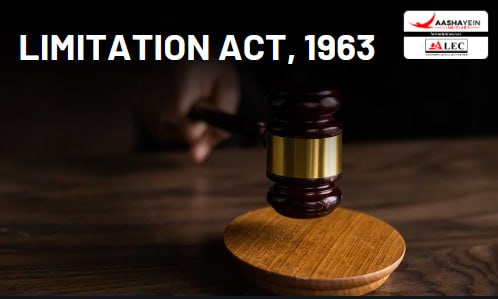The Limitation Act provides certain exceptions for excluding specific periods when calculating the time limit for filing a suit, appeal, or application. Sections 12 to 15 deal with such exclusions.
Section 12 – Time Exclusion in Legal Cases
Section 12 applies to suits, appeals, and applications. It specifies certain periods that should not be counted while computing the limitation period. These include:
- The day on which the cause of action arises.
- The day the judgment being challenged was delivered.
- The time taken to obtain a certified copy of the decree, order, or judgment.
- The time required to obtain a copy of an arbitral award.
You can also read the latest judgment by visiting [Latest Judgment].
For more information, visit [Aashayein Enquiry Section]
Court Interpretation
In Parthasarthy v. State of A.P. (AIR 1966 SC), the Supreme Court held that Section 12 allows the exclusion of time caused by an intervening event between the start and end of the limitation period.
Judgment and Decree Timing
There is usually a gap between the delivery of a judgment and the signing of the decree. However, the delay in signing the decree is not excluded unless an application for a copy is made. Only the time taken after applying for a copy can be excluded.
Legal Analysis
Section 12 ensures fairness in calculating limitation periods by excluding delays beyond a litigant’s control, such as obtaining necessary documents.
Exclusion of Time for Pauper Suits (Section 13)
Section 13 of the Limitation Act deals with cases where a person applies for permission to sue as a pauper, but the court rejects the application. If the person made the application in good faith within the prescribed time limit for filing a suit or appeal, then the time spent waiting for the court’s decision on the application will not be counted when calculating the limitation period. However, once the court fees are paid, the applicant must proceed with the case within the remaining time.
Legal Analysis
This section ensures that a person is not unfairly penalized for the time spent waiting for the court’s decision on their pauper application. If the application was filed in good faith and within the limitation period, the time spent on the process is excluded from the total limitation period.
Exclusion of Time Due to Wrong Court Jurisdiction (Section 14)
Section 14 allows a person to exclude the time spent on a legal proceeding in a court that ultimately had no jurisdiction. If a plaintiff was diligently pursuing a civil case but later discovered that the court lacked jurisdiction, they can exclude that time while calculating the limitation period for refiling the case in the correct court. However, this benefit applies only if the plaintiff acted in good faith and was not negligent.
Key points:
- This rule applies only to civil cases, not criminal matters.
- It does not apply if the first case was withdrawn voluntarily without any jurisdictional defect.
- If a plaintiff withdraws a case with permission to file a fresh suit, the limitation period is calculated as if the first case had never been filed.
- A person cannot claim this benefit if the earlier case was dismissed for reasons other than jurisdiction (e.g., negligence or inaction).
Legal Analysis
Section 14 helps plaintiffs who mistakenly file a case in the wrong court. If they acted in good faith and pursued the case diligently, the time spent in the wrong court would not count against their limitation period. However, this section does not excuse negligence or inaction.
Exclusion of Time in Certain Other Cases (Section 15)
Legal deadlines for filing cases or applications can sometimes be affected by external factors. Section 15 of the Limitation Act provides certain exceptions where time is not counted towards the limitation period.
Court-Ordered Stay
If a court issues a stay order in a case, meaning legal proceedings are temporarily paused, the time during which the stay is in effect does not count toward the deadline for filing.
Suing the Government
When filing a case against the government, the law requires the plaintiff to send a formal notice under Section 80 of the Civil Procedure Code. The time spent waiting for this notice period to expire is excluded from the limitation period.
Insolvency and Company Winding Up
If a company is undergoing liquidation or a person is declared insolvent, the appointed liquidator or receiver can exclude the time from their appointment until they are officially recognized. They also get an additional three months to file a lawsuit or an application.
Property Bought at Auction
If someone buys property at a court-ordered auction and needs to file a suit to gain possession, they can exclude the time spent in setting aside the sale deed from the limitation period. However, this applies only to lawsuits, not other types of applications.
Defendant Outside India
If the person being sued is outside India or beyond the central government’s jurisdiction, the period of their absence is not counted in the limitation period.
Legal Analysis
Section 15 ensures fairness by preventing legal deadlines from expiring due to delays beyond a person’s control. It gives people and legal representatives extra time in situations where proceeding immediately is not possible. This helps maintain justice while considering practical difficulties in legal actions.

